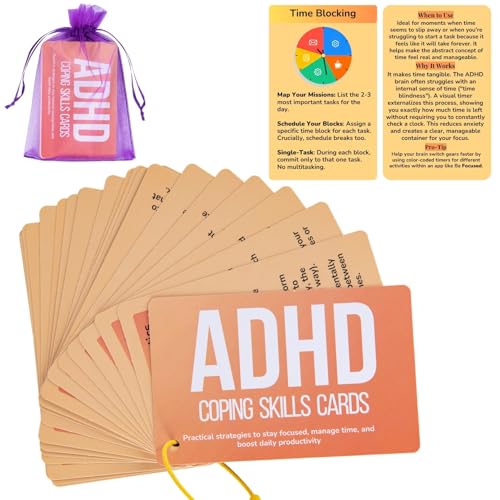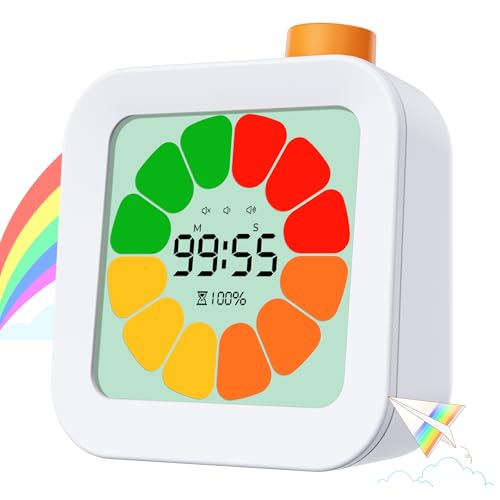When you discover your child’s ADHD diagnosis, it often feels like a mix of relief and regrets, especially when reflecting on early signs you might have missed, like fidgeting or trouble focusing. These subtle clues are easy to dismiss at first but become clearer in hindsight. Understanding what to look for now helps you support your child better. Keep going to explore how recognizing these signs earlier can change your approach and support journey.
Key Takeaways
- Early signs like fidgeting and impulsiveness often go unnoticed or are mistaken for normal childhood behaviors.
- Recognizing subtle clues earlier can lead to timely diagnosis and tailored support strategies.
- Post-diagnosis, implementing structured routines and positive reinforcement improves daily life at home and school.
- Advocating for educational accommodations ensures better engagement and academic success for children with ADHD.
- Increased awareness and support tools like AI-based tutoring can transform feelings of overwhelm into manageable progress.

Have you ever wondered what it’s like to finally get an ADHD diagnosis? It’s a mix of relief, confusion, and sometimes frustration, especially when you realize how many early signs you might have missed. You look back and see the subtle clues—fidgeting, difficulty focusing, impulsiveness—that seemed small at the time but now make sense. When you’re in the thick of it, though, it’s easy to dismiss these behaviors as just quirks or typical childhood challenges. That’s why understanding how parenting strategies and educational accommodations play a role is so important. Once you get that diagnosis, it reshapes how you approach daily life, both at home and in school.
Getting an ADHD diagnosis brings relief, clarity, and a new approach to parenting and education.
With a clear diagnosis, you start to see how some of those behaviors weren’t just “kids being kids,” but signs of ADHD. This awareness helps you develop more effective parenting strategies. Instead of reacting with frustration, you learn to create structure and routines that support your child’s needs. Break tasks into smaller, manageable steps, set clear expectations, and praise efforts rather than just outcomes. These strategies help your child build confidence and reduce frustration, making daily routines smoother. You also realize that patience and understanding can go a long way, helping your child feel supported rather than judged. It’s a shift that takes time, but it allows you to foster a more positive environment.
Educational accommodations become a vital part of your child’s success. Once diagnosed, you advocate for support in the classroom—like extended time on tests, quiet spaces for work, or preferential seating—to help your child stay engaged and manage their attention challenges. You learn to communicate with teachers, providing them with insights into your child’s needs and strengths. These accommodations aren’t just about managing symptoms; they’re about creating an environment where your child can thrive academically. It’s empowering to see how small adjustments can make a big difference in their ability to focus and participate fully.
As you progress, you also realize that early signs are often overlooked because they seem normal or manageable at first glance. But with the right knowledge and support, you can catch these signs sooner in the future, ensuring your child gets the help they need early on. Additionally, advancements in AI in Education such as Intelligent Tutoring Systems (ITS) can provide personalized support tailored to your child’s learning style, further enhancing their educational experience. The journey to an ADHD diagnosis isn’t just about understanding a label; it’s about equipping yourself with tools—like tailored parenting strategies and educational accommodations—that truly make a difference. It’s about learning to see the signs clearly and respond with compassion and practical solutions, turning what once felt overwhelming into manageable steps toward your child’s well-being and growth.

Scientoy Fidget Toy Set, 35 Pcs Sensory Toy for ADD, OCD, Autistic Children, Adults, Anxiety Autism to Stress Relief and Anti Anxiety with Motion Timer, Perfect for Classroom Reward with Gift Box
【Super-Value 35 Packed Fidget Toys】Scientoy sensory toy set includes 35 pcs of novelty toys with an update of…
As an affiliate, we earn on qualifying purchases.
As an affiliate, we earn on qualifying purchases.
Frequently Asked Questions
How Early Can ADHD Symptoms Appear in Children?
ADHD symptoms can appear as early as preschool age, often before children hit major developmental milestones. Early signs include trouble paying attention, hyperactivity, and impulsivity, which may stand out during simple tasks or social interactions. Keep an eye on these behaviors, especially if they persist over time. Recognizing early signs helps you seek evaluation sooner, ensuring your child gets the support they need during critical developmental stages.
Are There Any Genetic Factors Linked to ADHD?
You might think ADHD is just about focus issues, but genetics tell a different story. There’s a strong genetic predisposition, with familial links making it almost impossible to ignore how much family history influences it. In fact, if someone in your family has ADHD, your chances skyrocket. These genetic factors shape your brain’s wiring, emphasizing that ADHD isn’t just a random occurrence—it’s often written in your DNA.
Can Adults Be Diagnosed With ADHD?
Yes, adults can be diagnosed with ADHD through an adult assessment. However, diagnosis challenges exist because symptoms often overlap with other conditions, and many adults may not recognize their own behaviors as ADHD. During an assessment, a mental health professional reviews your history, symptoms, and functioning to determine if you meet the criteria. If diagnosed, you can access treatments that help manage your symptoms effectively.
What Are Common Misconceptions About ADHD?
Imagine ADHD as a unicorn—beautiful, misunderstood, and often mistaken for a horse. Many believe hyperactivity myths, thinking it’s just constant movement, or buy into inattentiveness stereotypes, assuming it’s laziness. The truth? ADHD is diverse, with some people hyperactive, others inattentive, and many a confusing mix. Don’t fall for these misconceptions; understanding the real signs helps you support yourself or others better.
How Does ADHD Affect Academic and Work Performance?
ADHD can substantially impact your academic and work performance by reducing your attention span, making it hard to focus on tasks. You might struggle with staying organized and managing deadlines, which affects your productivity. These challenges can lead to missed opportunities or errors. Recognizing these issues early helps you develop strategies to improve your organizational skills and maintain focus, ultimately boosting your performance and confidence in both school and work settings.

OLLY Laser Focus Gummy, Ginseng, Alpha GPC, B Vitamins, Berry Tangerine Flavor – 36 Count
OLLY LASER FOCUS: Get in the zone. These trusty little side-kicks enhance your thinking power and help you…
As an affiliate, we earn on qualifying purchases.
As an affiliate, we earn on qualifying purchases.
Conclusion
Your journey shows that sometimes, the signs are there all along, but you don’t see them right away. It’s easy to overlook what’s right in front of you, but recognizing those early clues can make all the difference. Now that you know, you’re better equipped to understand yourself and seek the support you need. Remember, sometimes the key to clarity is just opening your eyes a little wider—things aren’t always as hidden as they seem.

24 Double-Sided ADHD Therapy Tools & Coping Skills Cards for Adults & Teens – Executive Function, Anxiety Relief & ADHD Organization – Portable Flashcards with Digital App Suggestions
COMPREHENSIVE DOUBLE-SIDED CONTENT STRATEGY – Every card utilizes both front and back surfaces to provide a complete cognitive…
As an affiliate, we earn on qualifying purchases.
As an affiliate, we earn on qualifying purchases.

EooCoo Visual Timer for Kids with ADHD & Autism – Digital Countdown with Clear Petal-Style Visual Time Progress, Easy-to-Use Time Management Tool for Calm Transitions, Classroom & Home
Makes Time Visible For Adhd & Autistic Kids: Children who struggle with time blindness can finally see how…
As an affiliate, we earn on qualifying purchases.
As an affiliate, we earn on qualifying purchases.










